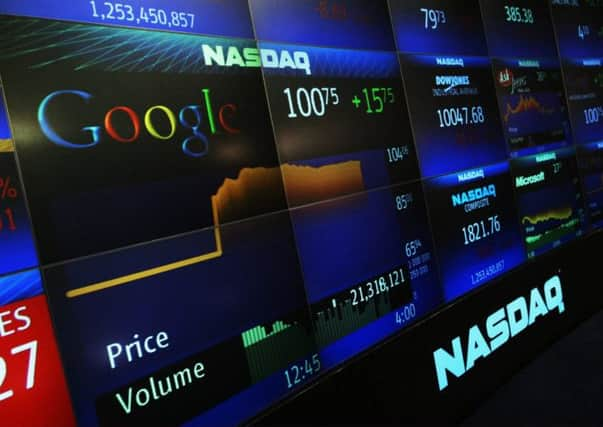Traders play down fears of dotcom stock bubble


Facebook, Google and Netflix are among the firms poised to finish 2013 at or near record levels, with smaller outfits including Pandora and Yelp enjoying a trebling of their share prices over the past year.
While some investors have been anxious about rocketing share prices, traders have pointed out that many of the stocks are already making money – unlike their peers in the late 1990s.
Advertisement
Hide AdAdvertisement
Hide AdCommentators also highlighted changes between 1999 and 2013 in the way in which the internet is used and accessed.
In 1999, users mainly connected to the web through slow dial-up services via a desktop computer – now there is faster broadband and mobile access from phones and tablets. Web-based advertising has grown into a mature, viable business, and computing speeds support video and sophisticated gaming.
The market is much more rational than it was in 1999, argues Jeff Dachis, who co-founded and was chief executive of Razorfish, an online advertising firm that went public in 1999, and is now part of France’s Publicis Groupe.
He said: “What you had then was 100 times the volume of stock with little to none of the credibility or weight in the marketplace that a Facebook or a Twitter has today.
“Nobody denies now the growth of online advertising or digital marketing.”
And Mark Mahaney, who began his career covering internet stocks in the 1990s at Morgan Stanley, working with star internet analyst Mary Meeker, said: “The end markets – internet advertising, online retail, online travel – are dramatically more developed today than they were in 1999 or 2000.”
At the end of 1999, eight out of ten of the most highly-valued stocks were tech companies, led by Yahoo trading at almost 577 times projected 2000 earnings, according to S&P Dow Jones.
Dotcom-era peers America Online (AOL) and Cisco Systems clocked in at 223 times and 102 times earnings respectively.
Advertisement
Hide AdAdvertisement
Hide AdFast-forward to 2013 and just four dotcoms rank among the year’s 20 biggest gainers on the S&P 500, led by Netflix’s quadrupling. Yahoo is at number ten after having doubled; Facebook has more than doubled.
Mike O’Rourke, chief market strategist at Jones Trading, said: “The consensus view in the market is that things are bubbly but, since the valuations are not as expensive as 1999, there is room to run.”
However, O’Rourke said such thinking may be flawed and cautioned that using one of the most expensive periods in stock market history as a comparison is extremely risky, with a limited reward. He added: “When bubbles pop, a large portion of the gains are erased very quickly.”
The lack of newly-listed internet stocks provides some relief for those concerned about a possible bubble. There were only five internet initial public offerings in the United States this year, including Twitter, compared with 86 in 1999, according to Thomson Reuters data.